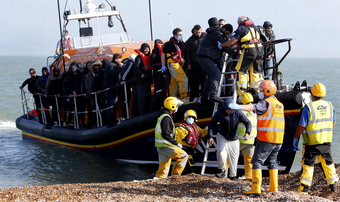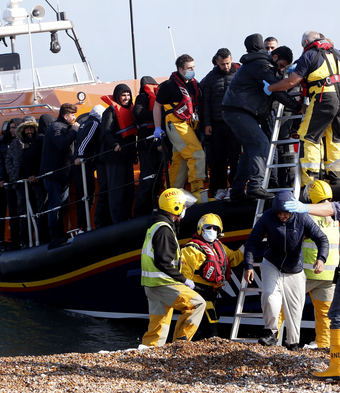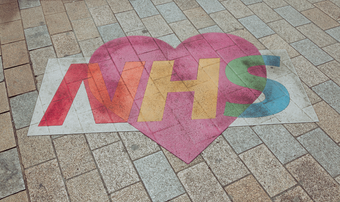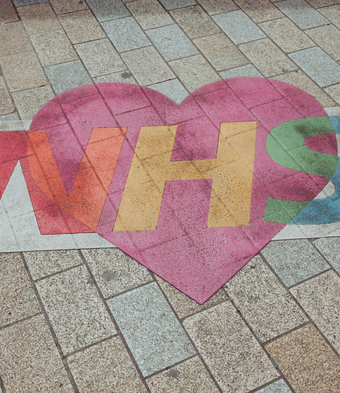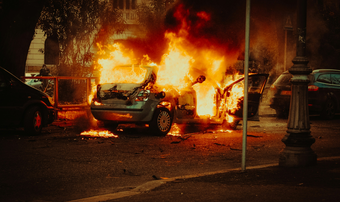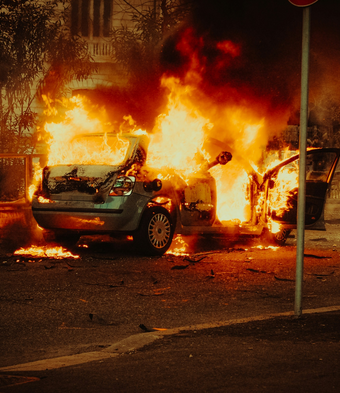The Cenotaph and the Culture Wars
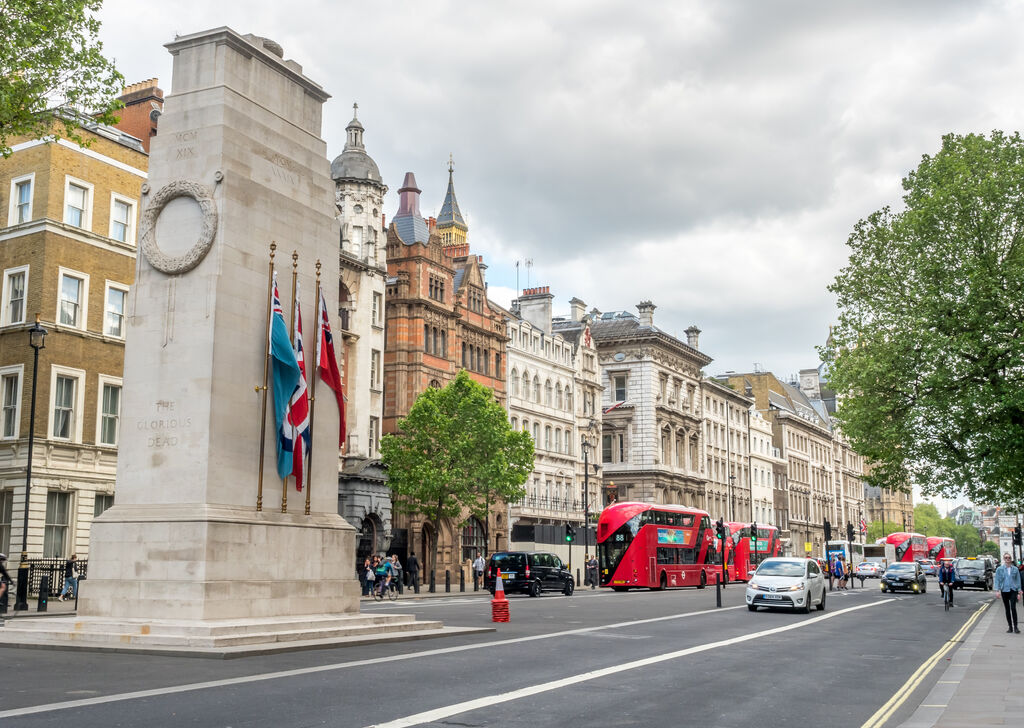
Jesus once said: “Every city or house divided against itself will not stand” (Matthew 12:26).
Many underestimate how foundational the divisions within our society today actually are. Some suggest that the culture wars are misunderstood; they either don’t exist or are simply considered an annoying waste of time, taking attention away from the real work, governing the nation.
I do have some sympathies with the second view. Many combatants in the culture war focus on either:
a) talking a lot about divisive issues without care or compassion for those on the other side
b) stoking division to distract from policy failures and to virtue signal for private political gain.
And yet, the culture wars are real and very important. For at their heart is a clash of worldviews. They reveal fundamentally different ways of viewing the world, rooted in religious belief, identity, life experience, and ideology.
The reason the culture wars feel so jarring for many of us, is that for the best part of 20 years, within the UK, there hasn’t been much obvious difference between the worldviews of our mainstream political leaders. There has been consensus. Sure, there have been differing views on rather technocratic decisions – how much money to give to the NHS each year say, or how we structure our pension systems – but these have been conversations around degree, not around the values themselves.
But these values are deeply important. What is good? What is justice? Who are we? They all cut deep, and they require answers. And yet whether it be in the debates about Brexit, transgender people or Net-Zero, we increasingly see that there is a fundamental difference in values, which ultimately lies behind the toxicity in those debates. There is a culture war taking place.
Of course, as we discuss some of the most foundational matters one can as a society, there is inevitably going to be pain and difficulty – particularly when debates are weaponised for political gain without truly trying to understand the other side.
Commentators such as Tom Holland have noted the long shadow of the Second World War and its impact in utterly reframing our understanding of right and wrong, of good and bad, and ultimately of evil itself. And part of this is the rejection of all that Nazism stood for and a desire to ensure such wickedness would never again plague the earth: this has led to the foregrounding of human rights as our single guiding moral doctrine.
But when we no longer have a shared moral understanding of what rights even are, or of how to act when one person’s human rights come into conflict with another’s (as is the case today in the Israel-Palestine situation), we are ultimately left in a world of division, in which each side only sees themselves as victims.
Don’t believe me? Just look at the latest chapter in the culture wars: the Armistice Day pro-Palestine march.
Armistice Day is an event foundational to our contemporary understanding of ourselves as a nation. It is a time for remembering the great sacrifices our fellow countrymen made in the name of freedom, liberty, and peace. Though war is rarely clear-cut, Armistice Day is a time in which we reflect on Britain’s role fighting for justice, for democracy, and for human rights.
The great tales of the Second World War are particularly foundational to this. Plucky Britain stood alone in the world (the story goes!) against the forces of Nazi barbarism. Through grit, determination, and a profound sense of moral calling (plus a healthy dose of help from the US and USSR), Britain fought back the tide of fascism, liberated Europe, and put an end to the Holocaust.
And for all that Britain’s involvement in warfare in recent decades has muddied the water, that sense of Britain being a force for good in the world, a champion of democracy, and a founding partner in a new world order based around human rights, is integral to the British national story.
Armistice Day feels sacred, both as a transcendent story in which we remember those who gave their lives in the service of all that was good and true, and in its significance as one of the few national events in which all of the United Kingdom is called to reflect and dwell in corporate unity.
Of course, Israel is intrinsically bound up in the stories we remember at Armistice Day. Israel is seen by many as a much-needed shelter for a people dehumanised, degraded, and slaughtered on an unimaginable scale in the death camps of Nazi fascism. The world order that Britain helped to shape following the Second World War began with a promise of “never again”. The barbarism of Hamas’ 7th October attacks particularly struck a chord within Britain. Seeing holocaust survivors shot, babies and children killed, women raped, and reports of children being tortured in front of their parents epitomised the very savagery that Britain stood against in the Second World War, and seeks to stand against today.
And so plans for a pro-Palestine march to take place in central London on Armistice Day have been jarring to say the least. 50% of Brits think the protests should be stopped, the Home Secretary has got herself in hot water for not simply opposing the march but sending some shots across the bow of the police in the process, and the police chief has been hauled into the public limelight to defend the decision.
And yet 34%, a not insubstantial number, think the march should go ahead. Within the culture war, this group comes from an entirely different perspective. For them, there is no problem with the march taking place on the same day as we remember the nation’s fallen soldiers in combat. For Armistice Day celebrates peace – the ending of war, and the memory of those who sacrificed, toiled, and suffered for peace and for justice. And on the streets of London today, they would say, the protestors are calling for peace, an end to war, and merely for humanitarian aid and freedoms for those caught up in the crossfire in Palestine.
For many of this perspective, Israel falls on the wrong side of this conflict. They are seen as the colonial overlords. They are seen as the presiders over a new system of apartheid. They are seen as abusers of human rights and perpetrators of a new genocide. They are simply the wrong sort of victims, as they hold significant military and financial power, are allied to the world order, and have the support of the largest (though declining) world empire in America.
In one narrative, the attacks of the 7th October were an unprovoked and brutal act of terrorism against an innocent people. In the other, the attacks were a response to years of oppression and subjugation at the hands of an empire, and they are understandable even if not defendable.
Israel lays claim to justice, to punish the perpetrators of the 7th October, to establish security and to so overwhelm her opponents that they will never again be able to undertake their crimes again.
Palestine too lays claim to justice, to the freedom of the innocent civilians, many of whom are children, who are fleeing the violence, and to having food, water, and medical aid for the suffering and the sick.
And as war rages on and people suffer horrors we cannot even imagine, this debate is playing itself out on London’s streets. Two different victims. Two different aggressors. Two very different ways of viewing the world, our place in it, and our sense of what is good, right, true, and honourable.
How are we to discern what is true, and to weigh up the competing rights of each side?
What is right and what is wrong? Who are we and why are we here? What higher good is there that can cut through the oversimplified binaries of a societal confusion, and direct us towards truth, beauty, righteousness, and justice.
These are the questions that matter, the ones which the culture wars only ever scratch the surface of.
For it seems to me that every new chapter in the culture wars soaks up our time, our energy, and our emotions, rather than getting to the heart of what really matters. An incident kicks off, a policy is proposed, a statement is made, and BAM – the two sides crank up the machine, go through the gears, and push out their ready-made slogans and headlines that we’ve heard all before.
What would be far more interesting, far more useful, and far more constructive, would be to chart a new path. To seek to better understand ourselves, to search for the good and the true and the beautiful, and to strive for a justice that both recognises all the complexities of the world and yet still calls a spade a spade.
And this is where the Christian story comes in. For we believe in a rich and beautiful story, one which makes sense of the wickedness in this world, one which is able to look evil in the face and to have an explanation and a solution, and one in which broken and divided people can be healed and reconciled, and one in which all others goods are ordered by the highest good, God Himself.
The human rights framework that governs our modern understanding of right and wrong has immense value, at its best it protects the vulnerable, curtails the exploitative, and brings justice.
But ultimately, it is insufficient for guiding us through our deepest and most painful public discussions. For it cannot answer our most fundamental of questions. Only our Creator can do that.

